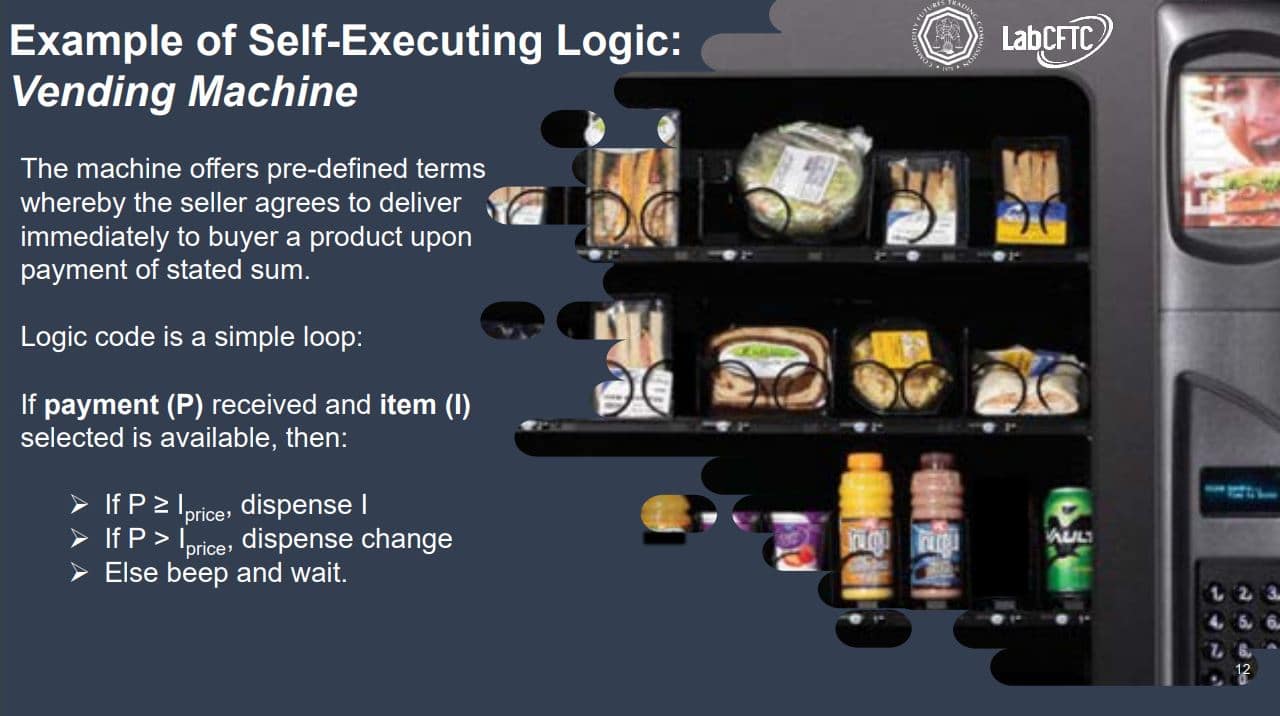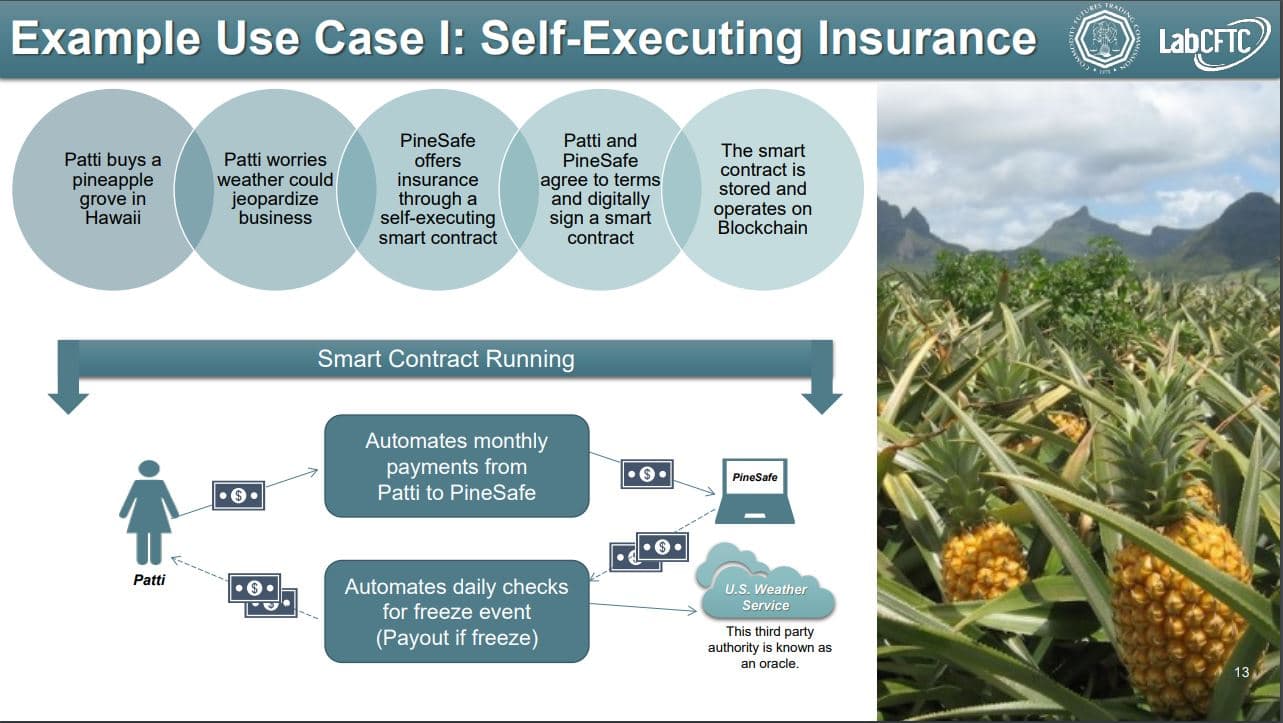LabCFTC, the technology research arm of the Commodity and Futures Trading Commission, one of the US' two main financial regulators, has published a guide to smart contracts.
What is a smart contract?
A smart contract is a contract written in computer code. This has many advantages over contracts that exist in the meat-based world - because the adjudicator and executor of terms is a computer, it theoretically neutralises the threat of cheating. Smart contracts were popularised by the success of Ethereum, which is a base upon which they can be programmed.
Or as the guide describes: "Allows self executing computer code to take actions at specified times and/or based on reference to the occurrence or non-occurrence of an action of even (e.g., delivery of an asset, weather conditions, or change in a reference rate)."
Here are some key points from the CFTC's guide.
A smart contract can be an oxymoron
The report explains that for all their strengths, a smart contract is only as smart as the person who wrote it. If the terms of the contract violate the law, the contract is not considered binding or enforceable. In other words, using a smart contract does not absolve users of all responsibility.
Furthermore, because they rely on 'oracles' - reference points for changing information - they can be corrupted because that information can be faked.
Smart contracts are based on a 20-year-old idea
The guide explains that Nick Szabo, an American computer programmer who some believe is Satoshi Nakamoto partly because of his publishing of a mechanism for a predecessor to Bitcoin in 1998, wrote of a smart contract in 1996. "The basic idea of smart contracts is that many kinds of contractual clauses...can be embedded in the hardware and software we deal with, in such a way as to make breach of contract expensive (if desired, sometimes prohibitively so) for the breacher."
Versions of smart contracts are present everywhere
Automatic processes are a part of the repertoire of trading companies. Trading algorithms make transactions according to variables input by their users; stop-loss orders cancel transactions when prices fall below a certain point.
Even a simply vending machine can be described as a form of smart contract:

Source: LabCFTC
The CFTC can see many positives to smart contracts
Smart contracts can bring built-in regulatory compliance, making it simply impossible to perform an illegal action, automating processes reduces waste of money and time, and standardisation reduces wasteful negotiations.
The report even adds some examples of useful applications - such as an electronic bicycle which is unlocked by a smart contract. Money is transferred to the relevant places only after successful completion of the journey, which is tracked.

Source: LabCFTC
Furthermore, the CFTC thinks that many of its regulated entities could benefit from using smart contracts in their business - including financial derivatives like futures.
The CFTC and cryptocurrency
The CFTC shares responsibility for cryptocurrency legal matters with the Securities and Exchange Commission, the US' other regulator. The two have not completely worked out who is in charge of what yet. LabCFTC, which was founded in May 2017, is the CFTC arm which deals with cryptocurrency.
In September, the CFTC had a legal breakthrough when a judge ruled that digital tokens can be classed as commodities, which allowed the watchdog to proceed in its legal action against an alleged scam.
In October, a CFTC commissioner stated at a conference in Dubai that in his opinion, in the case of illegal use of a smart contract, the developers of said contract should be held liable: "Think of someone asking you to borrow the keys to your car because they want to rob a bank."


















